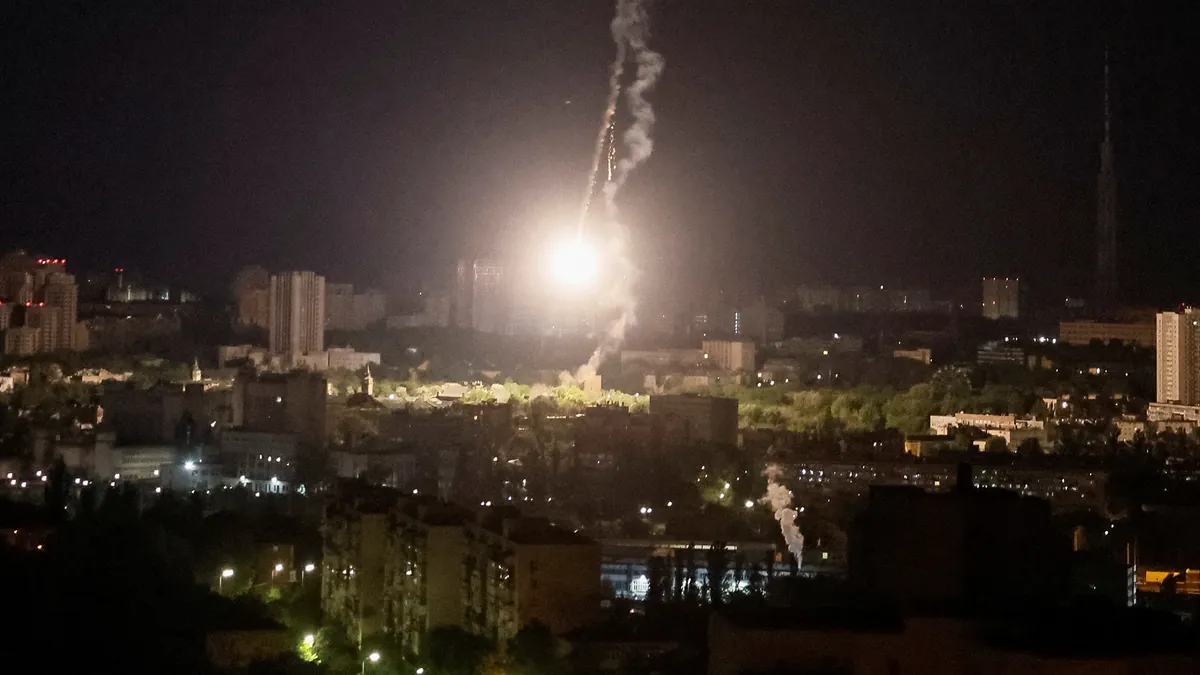Russian Missiles Target Kyiv on First School Day, Ukraine Intercepts Majority
Russia launched a massive missile and drone attack on Kyiv and other Ukrainian regions as children prepared for their first day of school. Ukrainian air defenses successfully intercepted most incoming threats.

On September 2, 2024, as Ukrainian children prepared for their first day of school, Russia initiated a large-scale missile and drone attack on Kyiv and other regions. The assault, occurring in the early hours of the morning, disrupted the start of the academic year and forced residents to seek shelter.
Ukraine's air defense systems demonstrated their effectiveness by intercepting a significant portion of the incoming threats. The Ukrainian air force reported successfully destroying 22 out of 35 cruise and ballistic missiles and 20 out of 23 attack drones launched by Moscow. This interception rate highlights the growing capabilities of Ukraine's air defenses, which have been bolstered by Western support since the start of the full-scale invasion in February 2022.
The attack impacted various districts of Kyiv, with debris from intercepted missiles and drones causing fires and damaging infrastructure. Vitali Klitschko, the mayor of Kyiv and former world heavyweight boxing champion, reported that a metro station entrance serving as a bomb shelter was struck in the Svyatoshynksyi district. Three individuals sustained injuries in the capital, according to the military administration.

In the Sumy region, which borders Russia, a rehabilitation center for orphans was hit by Russian munitions. While no children were present at the time, 18 residents of nearby houses were injured, including six children, nine women, and three men.
The assault coincided with the traditional first day of school, known as the "Day of Knowledge" in many post-Soviet countries. Despite the danger, many Ukrainian families remained determined to continue with their daily lives. One mother, whose six-year-old daughter was starting school for the first time, expressed her resolve: "We still need to go to school, right? We are Ukrainians."
The attack also affected local businesses, including florists preparing for the customary flower-giving tradition associated with the first day of school. Some florists had arrived as early as 5 AM to prepare, only to be forced to take cover during the assault.
In response to the missile launches, Poland scrambled its air force to potentially intercept any Russian missiles that might enter its airspace. This action reflects the growing concern among NATO members about the potential for the conflict to spill over into neighboring countries.
[[Polish Foreign Minister Radoslaw Sikorski]]
"Membership in NATO does not trump each country's responsibility for the protection of its own airspace – it's our own constitutional duty. I'm personally of the view that, when hostile missiles are on a course of entering our airspace, it would be legitimate self-defence (to strike them) because once they do cross into our airspace, the risk of debris injuring someone is significant."
As the war continues, Ukraine's resilience in the face of ongoing attacks remains evident. The country's ability to intercept a majority of incoming threats demonstrates the progress made in its air defense capabilities. However, the persistent targeting of civilian areas and the disruption of everyday life, particularly for children, underscores the ongoing challenges faced by Ukrainians in their struggle against Russian aggression.


































